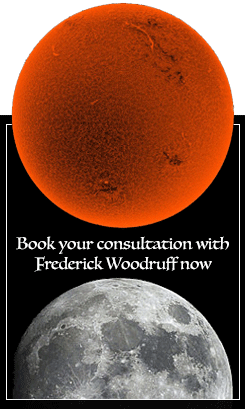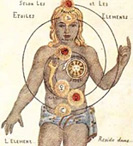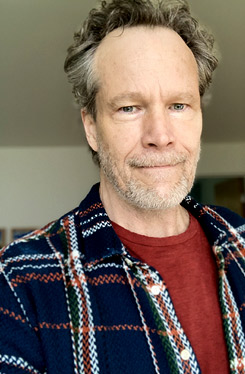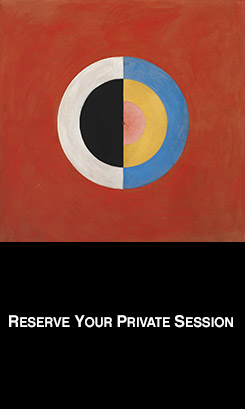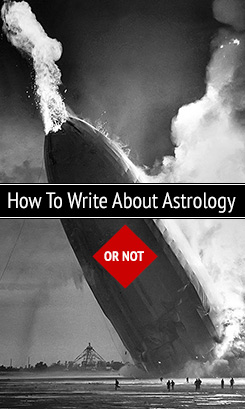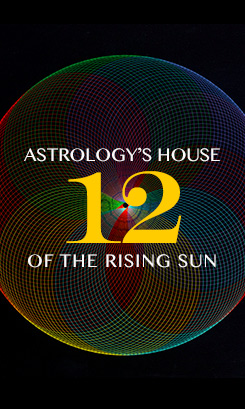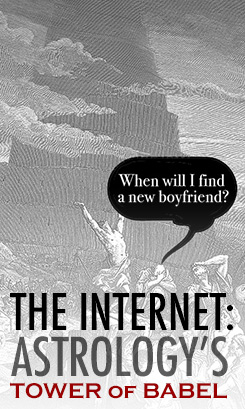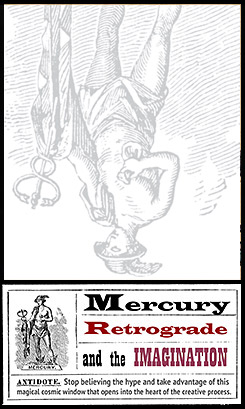End of the World Interview with Mitch Horowitz

Recently I clicked into a podcast with the author Mitch Horowitz that forced me to put away my painting (I usually multitask) and sit down to catch each illuminating insight from Horowitz’s encyclopedic memory.
I was fascinated to learn of the various magical, mystical, and spiritual movements that have influenced American history, from Plymouth Rock to the Twin Towers. A complete chronology of which Mitch details in his award-winning book Occult America: The Secret History of How Mysticism Shaped Our Nation.
Mitch currently works as the vice-president and editor-in-chief at Tarcher/Penguin. And he is completing his second book, One Simple Idea: How Positive Thinking Reshaped Modern Life, a history and defense of the positive-thinking movement, which will be available at the top of 2014 from Crown. You can find Mitch online at mitchhorowitz.com.
We spoke yesterday about astrology, conspiracy theories, the post-election political landscape, his own horoscope and of course tomorrow’s Mayan-inspired End Days prophecy.
Frederick Woodruff: How do you link the world of astrology to the political history of the United States? We all know about Nancy Reagan’s astrologer, Joan Quigley, but what else can you share about the cosmic art and its influence on US politics and policy?
Mitch Horowitz: I actually write about this in my new book One Simple Idea. Seen from one perspective, Ronald Reagan’s personal interest in astrology was fairly casual, and limited to reading the daily horoscope page. But in actuality both Ronald and Nancy Reagan were deeply attached to the social and spiritual mores of Southern California, where they spent almost three decades of their adult lives. They were proud of those ties, and I think rightly so.
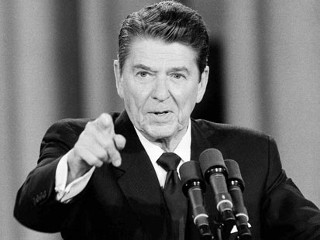
In my new work, I go into the deeper aspects of Reagan’s connections to that world. In a sense, he was indirectly a product of the positive-thinking movement, whose phraseology runs throughout his speeches. His first employer was a mind-power mystic and one of the shapers of chiropractic in America, B.J. Palmer, who gave Reagan his break into broadcasting.
One of Reagan’s Hollywood friends was an author named Eden Gray, who Tarot fans will recognize as a seminal, early author of Tarot guidebooks. Reagan spoke openly of his friendship with psychic Jeane Dixon, his belief in UFOs, his longtime interest in astrology and other mystical thought systems, and, most significantly, of the work of LA-based occult scholar Manly P. Hall, whose influence can be detected in Reagan’s earliest speeches.
I show how precise language and ideas from Hall appear in Reagan’s work, a topic I’ve also written about in The Washington Post.
The influence of occult philosophies in America tends not to appear in the form of secret affiliations or movements, but rather in the personal commitments of individuals themselves. And Reagan, in addition to a variety of other aspects of his identity, was significantly influenced by the New Age and mystical ideas he encountered in his Hollywood days.
Do you follow your own personal astrology? I mean, are you familiar with your horoscope and its transits and progressions?
Yes, I am personally interested in astrology. My skills are a bit rusty but in past years I’ve studied it. I’m always interested in the survival of belief systems from the ancient world; yet it’s important to realize that these systems rarely reach us intact. They pass through many permutations, so it’s questionable to what degree ancient oracular methods, even if taken on their own terms, are useful to contemporary people.
But I do believe in astrology as it was practiced by Carl Jung, Henry Miller, and D.H. Lawrence ––that is, that it may convey some kind of basic thumbprint of our psychological character.
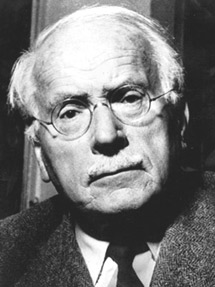
In the new book I’m writing, Save Yourself With Astrology, I’ve included a chapter titled “He’s Just Not That Into You,” which exposes key misconceptions about Jung and his alleged ardor for astrology. Contemporary astrologers parrot the Jungian notion of archetypes and synchronicity without a comprehensive understanding of what Jung actually meant by these terms.
As astrologer and psychotherapist Michael Harding boldly asserted, these very concepts are anti-astrology. Meaning, if applied to astrology, as Jung espoused them, they don’t jibe. It’s a very complex labryinth which he outlines in his book Hymns to the Ancient Gods, a book I wish every astrologer would explore. It’s one of this century’s finest.
Jung’s fascination with alchemy included astrological explorations, but only by proxy. The more I investigated the more I arrived at the conclusion that Jung didn’t offer the clear-cut stamp of approval astrologers tout today. In his final book Psychological Perspectives, Jung notes, in commenting on his analysis of married couple’s horoscopes:
“It is especially not understood what an excellent joke was made with the use of astrological statistics; people have even thought that I wanted to prove something in favor of astrology; it is hardly worthwhile to deal with all this pack of nonsense.”
My perspective on Jung’s interest in astrology stems less from his directly attributing validity to astrology and more to the dedication with which he studied it. My sense is that he committed many years to studying the precession of the equinoxes, in which he took a deep interest.
In Jung’s work Aion he equated the astrological ages with psychological archetypes defining different eras of human existence, e.g. the Piscean age, the Aquarian age. My takeaway from his work is that he also believed that an individual’s horoscope might provide a sketch of personal temperament — though that final leap was probably made more by later Jungian astrologers and therapists who ventured to combine the master’s ideas with their own interest in astrology.
Jung was not always easy to suss out. In his letters, essays, and public statements he cautiously voiced serious interest in occult matters yet at the same time maintained a step of removal. The reason for this, I think, is that even Jung, the man who many see as the father of the New Age, was sensitive that his reputation not be overly attached to the mystical.
That concern contributed to the sometimes-obtuse tone of Jung’s writings, in which he would, I believe, use overly complex terminology and sub-terms as a manner of bringing a scholastic tone to ideas that remained verboten. Hence, it is probably more accurate to speak of “Jungian astrology” as a development that followed Jung’s career rather than took shape during it.
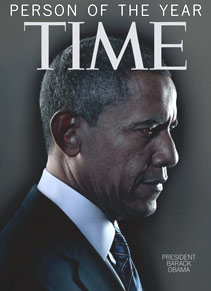
Let’s shift topics to politics. Yesterday Time magazine announced Obama as their Person of the Year. The portrait of the President is dark and foreboding. The depiction feels deliberate. Studied semiotically it telegraphs the gloom and seriousness of the condition that weighs on Obama right now. What was your take on the cover Mitch?
I think it’s a well-chosen image; it reflects the maturation of the hope on which Obama was elected. It reminds me, in some respects, of photographs of Abraham Lincoln.
Obama is positioned on a fulcrum, trying to both balance and quell the lunacy and conspiracy theory-driven extremes in the country. How do you view Obama within the larger historical overview you researched in writing your book Occult America?
A radio host once asked me if I knew of any occult conspiracies within the Obama Administration. What I told him is that if people wanted to grasp some of the man’s inner beliefs they should start by reading Ralph Waldo Emerson’s essay “Self-Reliance†— which Obama cites as one of his primary influences.
I believe that people should start with the basics, and first cover the influences that a person names himself before getting into tantalizing — and mostly imaginary — notions about occult power in high places. The funny thing is, for all the misdirected conspiracy theorizing around Obama, there are other major politicians who did, in fact, have real esoteric commitments. Chief among them was Franklin Roosevelt’s second vice president, Henry Wallace, a deeply earnest and serious man who was a member of the Theosophical Society and a seeker in areas of astrology, shamanism, Eastern faiths, and esoteric spirituality.
Bill and Hillary Clinton met with my friend Jean Houston during their White House years — Jean is a teacher of great integrity of esoteric ideas. I’ve already noted Reagan’s ties. I find none of these connections running through the Obama White House — but if people want to connect with ideas that were meaningful to him when he was growing up, start with Emerson’s “Self-Reliance.†It is guaranteed to be time well spent.
The agitated, polarized atmosphere in America finds the rational, scientific side of the country aligned with the Democrats and the religious, irrational ‘wingnut’ side aligned with the Republicans. In writing Occult America, did you see similar divisions through history? In other words is this just the current manifestation of an ongoing rift, a wound, still throbbing, that’s associated with the Civil War?
It’s an interesting question — the truth is there’s no natural or longstanding Left-Right division in matters of spirituality. For instance, many of the positive-thinking pioneers in the late nineteenth and early twentieth centuries were true social reformers. Wallace D. Wattles, who wrote The Science of Getting Rich, ran for Congress on the ticket of the Socialist Party.
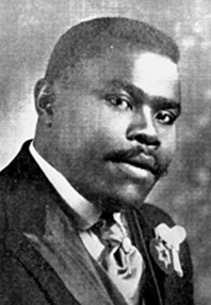
Marcus Garvey (right), the black-nationalist pioneer, was deeply interested in mind-power metaphysics. The woman who first saw the potential for using mental-healing teachings in matters of prosperity was a British social reformer named Francis Lord who visited America to work with suffragist pioneer Elizabeth Cady Stanton, who also had an interest in this area.
I write about these figures in the new book. Now, the conservative culture in America has also been supportive of the independent spiritual search. The Roberts Supreme Court recently ruled in favor of the rights of a Shamanic church to use psychedelics as part of its religious rites. The military, which is traditionally considered a conservative culture, has been welcoming of new religions; the U.S. Army’s chaplains’ handbook, for example, has an excellent section on Wicca, which is now a formally recognized faith in both the military and the Department of Veterans Affairs. The great purpose of America, I believe, is the protection of the individual search for meaning. And that is something that ought to unite people from every reach of the political landscape.
What about the burgeoning array of conspiracy theories that seem to have gone haywire after Obama’s election in 2008 — how would you explain that phenomenon?
Well, I’m not at all oriented toward conspiracy theories — I tend to view conspiracy theorizing as a factual dead-end, and I find it ethically problematic, too, as it serves to reinforce an “us vs. them” mentality. Rather, the real truths of American history are more astonishing, to my mind, than anything conspiracy theories would hold.
You must have been fascinated to see a Mormon get close to the Presidency this year. The founder of Mormonism, Joseph Smith was quite a character, as I’ve researched him. He had his start as a kind of New Age charlatan, yes?
Smith was a remarkable and, in some ways, heroic figure. He grew up in the early nineteenth century in a region of Central New York State called the “Burned-Over District.†It was so-named for being “burned over†by the fires of the spirit. I call it the Mount Sinai of American mysticism.
This region gave birth to many mystical and alternative religious movements, including Spiritualism, or talking to the dead, and the religion of Seventh-Day Adventism, which grew from the work of a local Baptist-Freemason named William Miller. It was also the birthplace of the suffragist movement and many of America’s early utopian communities.
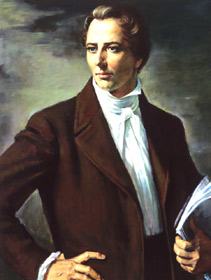
Joseph Smith and his family were deeply steeped in the lore of the area. For example, Smith had an avowed interested in astrology; at his death he was wearing an astrological amulet of Jupiter.
Smith was known as a local clairvoyant who assisted local treasure hunters. Among the reasons that treasure hunting was so popular in the area was a legend that the Burned-over District had once been home to an ancient tribe older than the oldest Indian tribes. It was said to have been wiped out in a confrontation with one of the Iroquois tribes. Some believed that this was a lost tribe of Israel, a concept that later emerged in Smith’s Book of Mormon. Smith’s followers saw this as a confirmation of the area’s folklore; critics, on the other side, saw it as evidence that Smith pilfered bits of history from area beliefs.
I don’t personally side with the critics. I think Smith was a remarkable and inspired figure. And the occult aspects of his youth helped shape him in his spiritual maturity and as the deliverer of a very powerful testament.
But its origins — the buried golden tablets that could only be read with a special crystal device — seem suspect. But then as my friend, the writer John Calendo notes: all religions have rather bizarre cosmologies and origins. Do you agree with that?
It is true that virtually all of our religions, both historic and modern, begin with some kind of supernatural claims. So, if our religions were held up to the mirror of empiricism I doubt any would pass muster. I tend to look at how faiths play out in people’s lives, and I’ve been touched by what I’ve seen of Mormonism’s influence on individuals, for the most part.
Plus, when one gets into matters of vision and revelation, things are very subjective and personal; it is impossible to know what Joseph Smith experienced, but I don’t believe that his testament, and its long influence, could have grown from brazen opportunism. Historically, my sense is that when people overstate their experiences or devise them for cynical purposes, they may attain a certain celebrity but it is usually short-lived.
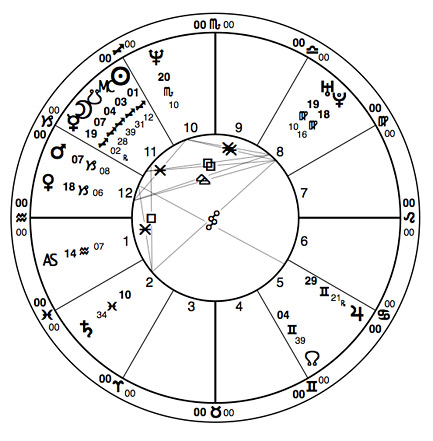
Moving back to the astrological realm. How about your own horoscope? As you’ve become familiar with your chart over the years would you say it mirrors your particular proclivities and vocations; your fascination with metaphysics and history?
It’s funny, many years ago I had ordered from the Edgar Cayce Foundation a computer-generated birth chart and I was reading its analysis out loud to my wife, who was in another room; I reached a point where it said: “You will be interested in occult publishing…” and we each burst out laughing because it was so dead-on accurate, even for a mass-produced reading.
So I gather that I have some fairly straight-forward traits in there. I’m especially heavily aspected in the Placidus-based 9th and 10th houses, where you’ll find the sun, moon, and Mercury.
Though I’m a Sagittarius by sun, I identify strongly with my Aquarius rising. I’m very interested in Aquarius’s being jointly ruled by both Uranus and Saturn. I once joked to an astrologer that I’m the kind of guy who would join an anarchist club — and become treasurer. Innovation and structure are equally important to me, which I think emerges from that joint rulership.
Finally Mitch, the world is due to end tomorrow. How often have doomsday scenarios appeared historically in the US? And what do you sense is beneath our fascination with being alive for the End of Days?
There are a lot of interesting issues there — we may have to do another round to address that! I mentioned earlier the religion of Seventh-Day Adventism, which got its start in the 1840s when William Miller spread his prophecies of imminent end times, based on his interpretation of Scripture.
In America, various concepts of Armageddon, whether involving 2012 or Y2K or Biblical interpretations, have a long history. And, of course, ancient and modern European history has seen a great deal of this, as well.
In our own time, I believe that our fascination with apocalysm stems from our boredom and depression with the routines of daily existence, something that I think we as individuals have not looked at nearly closely enough. And, oddly, even as we fantasize about “the end†we fail to adequately prepare for real and predictable emergencies, such as hurricanes Katrina and Sandy.
As I’m writing this, the Mayan end date itself, December 21st, 2012, is tomorrow. I have a piece going up then at BoingBoing which deals with all this. (Which I suppose is also my way of saying that I think we’re going to be around to consider it.)
I do respect ancient prophecy and I care deeply about what the Maya stood for. But I think our fascination with “end time†stems from a discomfort with routine daily life, which we have not yet begun to probe.
Read more of Mitch’s comments and his predictions related to an upcoming ‘occult revival’ during the ongoing Uranus/Pluto square. Some fascinating observations.
